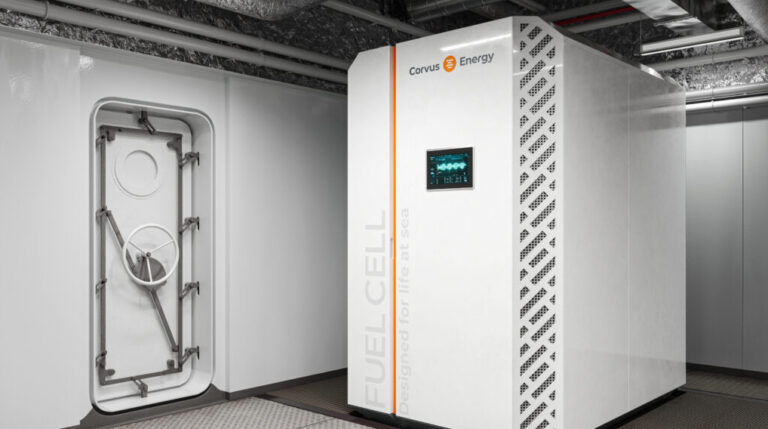Corvus Energy has been awarded funding for the integration of ammonia cracker technology with its Pelican fuel cell system.
The project, dubbed APOLO, aims to solve the challenges of power conversion from ammonia and develop an efficient and flexible ammonia cracking technology for the maritime sector.
The four-year program, which started January 1, 2024, will demonstrate power conversion from commercially available fuel cell systems using hydrogen from ammonia cracking with a power output of 125kW. The program will also test an ammonia cracker coupled with a novel ammonia engine running on an ammonia/hydrogen blend to compare the different technologies.
The project funding is part of the Horizon Europe Framework Program, Horizon-CL5-2023-D5-01. The technologies developed in APOLO will be capable of targeting the first 30,000 ships in the market. Initially, the focus will be on vessels with 1-10MW propulsion, with a significant number of them being around 3MW in the next decade, as these are the first vessels relevant for ammonia-powered solutions.
Partnering Corvus Energy in the project are H2Site, Tecnalia, Eindhoven University of Technology, 1 Cube, Chalmers University of Technology, Nuvera, Astander, Fertiberia and LEC GmbH. Tecnalia will be the coordinator of the project.
Through the program, Corvus Energy will work with H2Site and the other partners on the development, integration, testing and demonstration of the ammonia cracker and its Corvus Pelican PEM fuel cell. In addition, Corvus Energy will lead a work package developing a business case for these systems used on board ships.
 “We are very grateful for the opportunity to collaborate on this exciting development. In decarbonizing the maritime sector, ammonia will be an essential part of the energy mix for ships sailing the longest routes and that emit the most,” explained Svenn Kjetil Haveland, vice president of development projects at Corvus Energy. “There are no commercially viable ammonia solutions available for shipowners today. Developing advanced methods for cracking ammonia and demonstrating scalability and overall system efficiency is an important step forward.”
“We are very grateful for the opportunity to collaborate on this exciting development. In decarbonizing the maritime sector, ammonia will be an essential part of the energy mix for ships sailing the longest routes and that emit the most,” explained Svenn Kjetil Haveland, vice president of development projects at Corvus Energy. “There are no commercially viable ammonia solutions available for shipowners today. Developing advanced methods for cracking ammonia and demonstrating scalability and overall system efficiency is an important step forward.”
For more key power and propulsion updates from the electric and hybrid marine technology industry, click here. For more on Corvus Energy, click here



